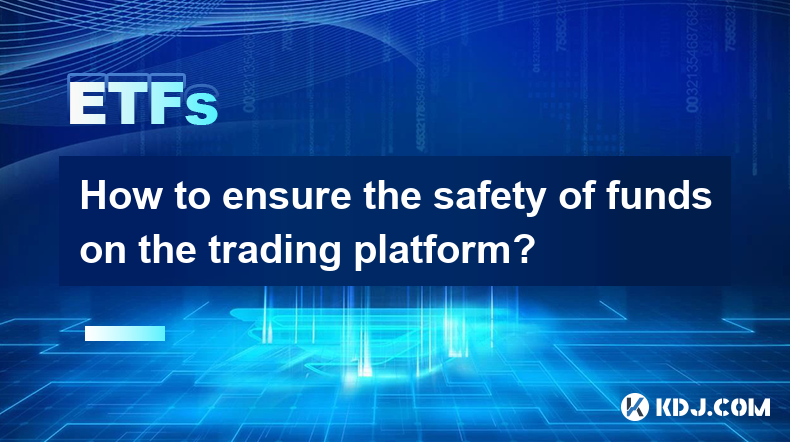-
 Bitcoin
Bitcoin $87,138.6549
3.45% -
 Ethereum
Ethereum $1,630.6301
3.37% -
 Tether USDt
Tether USDt $0.9999
0.02% -
 XRP
XRP $2.1240
3.87% -
 BNB
BNB $602.7013
2.07% -
 Solana
Solana $139.6766
1.06% -
 USDC
USDC $0.9999
0.02% -
 Dogecoin
Dogecoin $0.1617
5.47% -
 TRON
TRON $0.2432
-0.25% -
 Cardano
Cardano $0.6428
4.75% -
 Chainlink
Chainlink $13.4950
4.04% -
 UNUS SED LEO
UNUS SED LEO $9.4545
1.03% -
 Avalanche
Avalanche $20.5863
6.23% -
 Stellar
Stellar $0.2598
7.69% -
 Toncoin
Toncoin $3.0197
1.67% -
 Shiba Inu
Shiba Inu $0.0...01264
3.99% -
 Sui
Sui $2.2650
7.98% -
 Hedera
Hedera $0.1713
5.99% -
 Bitcoin Cash
Bitcoin Cash $340.6319
2.17% -
 Polkadot
Polkadot $3.9095
1.97% -
 Litecoin
Litecoin $80.7078
6.42% -
 Hyperliquid
Hyperliquid $17.8959
2.22% -
 Bitget Token
Bitget Token $4.4759
1.24% -
 Dai
Dai $1.0000
0.00% -
 Ethena USDe
Ethena USDe $0.9992
0.01% -
 Pi
Pi $0.6342
1.85% -
 Monero
Monero $216.1510
1.12% -
 Uniswap
Uniswap $5.4363
4.91% -
 Pepe
Pepe $0.0...07862
7.63% -
 Aptos
Aptos $5.1607
5.19%
How to ensure the safety of funds on the trading platform?
To safeguard funds on trading platforms, prioritize selecting reputable options with robust security features, like SSL encryption and two-factor authentication, while minimizing the amount held online and utilizing hardware wallets for offline storage.
Jan 06, 2025 at 03:04 pm

Key Points:
- Choose a reputable platform with a proven track record of security.
- Check the platform's security features, such as SSL encryption and two-factor authentication.
- Limit the amount of funds you hold on the platform.
- Use a hardware wallet to store your cryptocurrencies offline.
- Be aware of phishing scams and other security risks.
How to Ensure the Safety of Funds on the Trading Platform
1. Choose a Reputable Platform:
The first step to ensuring the safety of your funds is to choose a reputable trading platform. Look for a platform that has been in business for several years and has a proven track record of security. Check online reviews and compare the platform's security features with those of other platforms.
2. Check the Platform's Security Features:
Once you have chosen a platform, take some time to check its security features. Make sure the platform uses SSL encryption to protect your data and two-factor authentication to prevent unauthorized access to your account. The platform should also have a dedicated security team that is responsible for monitoring the platform for vulnerabilities and implementing security measures.
3. Limit the Amount of Funds You Hold on the Platform:
It is not advisable to hold large amounts of funds on any trading platform. This is because even the most secure platforms can be hacked. If you have large amounts of funds, consider using a hardware wallet to store your cryptocurrencies offline.
4. Use a Hardware Wallet to Store Your Cryptocurrencies Offline:
A hardware wallet is a physical device that stores your cryptocurrencies offline. This provides an extra layer of security because your cryptocurrencies are not stored on the internet and are therefore not susceptible to cyberattacks.
5. Be Aware of Phishing Scams and Other Security Risks:
Phishing scams are a common way for attackers to steal your cryptocurrency. These scams involve sending you an email or text message that appears to be from a legitimate source, such as your trading platform. The email or text message will contain a link to a fake website that is designed to steal your login credentials. Be wary of any emails or text messages that you receive from unknown senders and never click on links that you do not recognize.
FAQs:
What are some of the most common security risks on trading platforms?
- Phishing scams
- Hacking
- Insider theft
What are some of the ways to protect my funds on a trading platform?
- Use a reputable platform
- Limit the amount of funds you hold on the platform
- Use a hardware wallet to store your cryptocurrencies offline
What are some of the best trading platforms for security?
- Coinbase
- Binance
- Kraken
Disclaimer:info@kdj.com
The information provided is not trading advice. kdj.com does not assume any responsibility for any investments made based on the information provided in this article. Cryptocurrencies are highly volatile and it is highly recommended that you invest with caution after thorough research!
If you believe that the content used on this website infringes your copyright, please contact us immediately (info@kdj.com) and we will delete it promptly.
- Ethereum (ETH) Attempts a Comeback as Key Resistance Nears
- 2025-04-21 20:00:20
- Bitcoin Did Not Have the Explosive Start Many Expected
- 2025-04-21 20:00:20
- Bitcoin (BTC) Surges to New All-Time Highs as Gold Market Invests Flock to Safe-Haven Assets
- 2025-04-21 19:55:13
- AI Trading Agents Are Disrupting the Financial Services Industry
- 2025-04-21 19:55:13
- 4 Crypto Coins to Watch That Are Rewriting the Rules
- 2025-04-21 19:50:12
- President Donald Trump's threat to terminate Federal Reserve Chairman Jerome Powell
- 2025-04-21 19:50:12
Related knowledge

What role does SEC play in Bitcoin ETF approval?
Feb 25,2025 at 06:48am
Key Points:SEC's Role in Bitcoin ETF Approval ProcessHistorical Efforts to Establish a Bitcoin ETFSEC's Criteria for Bitcoin ETF ApprovalPotential Impact of a Bitcoin ETF on the Cryptocurrency MarketTimeline and Outlook for Bitcoin ETF ApprovalArticle:SEC Play in Bitcoin ETF ApprovalThe United States Securities and Exchange Commission (SEC) plays a crit...

Who is eligible to issue Bitcoin ETFs?
Feb 25,2025 at 11:13am
Key Points:Only regulated financial institutions with the necessary expertise and infrastructure are eligible to issue Bitcoin ETFs.The Securities and Exchange Commission (SEC) has not yet approved any spot Bitcoin ETFs, but has approved several futures-based ETFs.Applicants must meet stringent requirements, including having a strong track record and su...

What impact does Bitcoin ETF have on the market?
Feb 25,2025 at 11:37am
Key Points:Introduction to Bitcoin ETFs and their role in the cryptocurrency marketHistorical development and performance of Bitcoin ETFsPotential benefits of Bitcoin ETFs for investors and the marketRisks and limitations associated with Bitcoin ETFsRegulatory considerations and their impact on Bitcoin ETFsArticle:Introduction to Bitcoin ETFsBitcoin exc...

Which investors are Bitcoin ETFs suitable for?
Feb 27,2025 at 04:01pm
Key Points:Understanding Bitcoin ETFsBenefits of Bitcoin ETFsSuitability of Bitcoin ETFs for Different InvestorsAssessing Risk Tolerance and Investment GoalsConsidering Short-Term and Long-Term StrategiesExamining Tax ImplicationsSeeking Professional AdviceUnderstanding Bitcoin ETFsBitcoin exchange-traded funds (ETFs) are investment vehicles that track ...

What is the administrative expenses of Bitcoin ETFs?
Feb 26,2025 at 12:24am
Key Points:Administrative expenses are a crucial factor to consider when evaluating Bitcoin ETFs.These expenses can significantly impact the performance of the fund and ultimately the investor's returns.Understanding the various components of administrative expenses is essential for informed decision-making.Comparing administrative expenses across diffe...

What are the fees for purchasing Bitcoin ETFs?
Feb 27,2025 at 07:13pm
Key Points:Bitcoin exchange-traded funds (ETFs) are a cost-effective and regulated way to gain exposure to Bitcoin.Fees associated with Bitcoin ETF purchases vary depending on the platform, trading volume, and account type.It is essential to evaluate fee structures carefully to optimize investment returns.Fees Associated with Purchasing Bitcoin ETFs1. B...

What role does SEC play in Bitcoin ETF approval?
Feb 25,2025 at 06:48am
Key Points:SEC's Role in Bitcoin ETF Approval ProcessHistorical Efforts to Establish a Bitcoin ETFSEC's Criteria for Bitcoin ETF ApprovalPotential Impact of a Bitcoin ETF on the Cryptocurrency MarketTimeline and Outlook for Bitcoin ETF ApprovalArticle:SEC Play in Bitcoin ETF ApprovalThe United States Securities and Exchange Commission (SEC) plays a crit...

Who is eligible to issue Bitcoin ETFs?
Feb 25,2025 at 11:13am
Key Points:Only regulated financial institutions with the necessary expertise and infrastructure are eligible to issue Bitcoin ETFs.The Securities and Exchange Commission (SEC) has not yet approved any spot Bitcoin ETFs, but has approved several futures-based ETFs.Applicants must meet stringent requirements, including having a strong track record and su...

What impact does Bitcoin ETF have on the market?
Feb 25,2025 at 11:37am
Key Points:Introduction to Bitcoin ETFs and their role in the cryptocurrency marketHistorical development and performance of Bitcoin ETFsPotential benefits of Bitcoin ETFs for investors and the marketRisks and limitations associated with Bitcoin ETFsRegulatory considerations and their impact on Bitcoin ETFsArticle:Introduction to Bitcoin ETFsBitcoin exc...

Which investors are Bitcoin ETFs suitable for?
Feb 27,2025 at 04:01pm
Key Points:Understanding Bitcoin ETFsBenefits of Bitcoin ETFsSuitability of Bitcoin ETFs for Different InvestorsAssessing Risk Tolerance and Investment GoalsConsidering Short-Term and Long-Term StrategiesExamining Tax ImplicationsSeeking Professional AdviceUnderstanding Bitcoin ETFsBitcoin exchange-traded funds (ETFs) are investment vehicles that track ...

What is the administrative expenses of Bitcoin ETFs?
Feb 26,2025 at 12:24am
Key Points:Administrative expenses are a crucial factor to consider when evaluating Bitcoin ETFs.These expenses can significantly impact the performance of the fund and ultimately the investor's returns.Understanding the various components of administrative expenses is essential for informed decision-making.Comparing administrative expenses across diffe...

What are the fees for purchasing Bitcoin ETFs?
Feb 27,2025 at 07:13pm
Key Points:Bitcoin exchange-traded funds (ETFs) are a cost-effective and regulated way to gain exposure to Bitcoin.Fees associated with Bitcoin ETF purchases vary depending on the platform, trading volume, and account type.It is essential to evaluate fee structures carefully to optimize investment returns.Fees Associated with Purchasing Bitcoin ETFs1. B...
See all articles






















































































